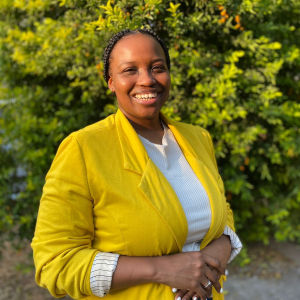Share This Story, Choose Your Platform!
My Teenage Child Doesn’t Open-Up To Me. What Should I Do?
Religiously so, children are believed to be a blessing and a gift from God, but what happens when the “blessing/gift” does not bless you with communication? Well for one, punishment is not always the answer. But what could possibly be the answer…?
Talking to your child.
Talking to your teenage child might not be the easiest thing to do but it can definitely be the start of gaining their trust. Firstly,we need to understand that all children are not the same, some children are talkative and some are naturally reserved and or quiet. It does not mean that their silence is caused by trauma, it just means that the reserved and or quiet child might be introverted, while other children might be extroverted. Introverts find pleasure in spending time alone and tend to be more reserved. They tend to work independently and like to process thoughts internally. Extroverts on the other hand find pleasure in spending time with others. They are usually outgoing and love to work in collaborations. They also often like to express themselves by being open, loud and talkative. If your child exhibits both characteristics, then they are possibly an ambivert. An ambivert is someone who can exhibit qualities of both introversion and extroversion depending on the context (these may be location, temperament and association.
Introvert Ambivert Extrovert
-Internalises thoughts -Expresses thoughts through talking
-Personal Space -Shared Space
-Reserved -Outgoing
Children have different qualities individually – even biological siblings that share the same parents will not always have the same qualities. Personality traits or characteristics can be built based on nature and nurture. Nurture would be the environment in which the child is brought up in, where change is inevitable and constant. While nature would be the hereditary characteristics that would come to play in the DNA build of a person. These two factors can play a big role in making a person an introvert, extrovert or ambivert. Now that we know that all children are not the same, what else could cause a teenage child to not communicate? Ideally we all hope that children are raised in a trauma free environment but, anything is possible. An example of this can be a child experiencing trauma at school seeing one of their peers break their leg on the netball court or a peer getting tackled violently on a rugby field or even being bullied, which is the most common one. Bullying is a very common trend in schools, both primary schools and high schools. Bullying can be a major key factor in having your child turn from communicative to distant and uncommunicative.
Temperament changes can be based on the environment. Maybe your child is upset about a move of cities, or move of schools or loss of a loved one or maybe they are a possible victim of bullying. So how will you know that your child is closed off because they are being bullied? Have a conversation with them and ask them the following questions:
- Do you have any new friends?
- What are their names?
- Favourite song?
- Favourite food?
- How was school today?
- Do you feel loved?
- Who do you trust?
- Do you feel safe at home?
- Do you feel safe at school?
- What do you like to do for fun?
- What is your current favourite subject in school?
After you have asked a couple of the questions listed, assure them that you are not interrogating them, you are just trying to understand them better.This will give you a fair share of understanding who they are and what they are currently going through emotionally.
You might be tempted to ask:
“What happens if my child does not engage with me? What if they continue to shut me out?”
One of your options might be to ask any adult that your child is close to and is comfortable with to have such conversations with. This can be a sibling, a teacher, a coach, or a friend. A research study done by Ken J. Rotenbergon child development showed how children trust their peers and other adults more than their own parents. The children were asked to rate their trust level of their peers on a scale of 1-5, with 1 being the lowest and 5 being the highest. The children ranked their peers solid 5s and their reasoning was that their peers have kept their secrets before. So when it comes to trust, children will pick their friends and other adults before picking you as their parent. It is normal, and yes it does happen.
“What if you have an introverted child that does not open up to anyone, not even his/her peers?
Well that’s where we as counsellors come in. We are trained to allow your child a non-biased expression platform for them to feel safe and heard. Counselling sessions for children do not necessarily mean that something is wrong with the child. Everybody needs someone to talk to and so does your child. Teenagers tend to want to experiment their youth away, hence we provide that liberty for them to express who they think they are and who they want to be in the future.
Counselling does not make things change supernaturally, but it can provide your child the platform to learn about communication and even encourage them to attempt it.



